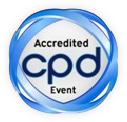
Hector Hugo Caicedo
Pharmaceutical Companies of Johnson & Johnson, USA
Title: Real-world microfluidic analytics applications in the pharmaceutical biotech industry
Biography
Biography: Hector Hugo Caicedo
Abstract
Microfluidics has the potential to influence all subject areas of biotechnology from agricultural and environmental to medical and pharmaceutical biotechnology. Even though translational microfluidics science and technology are still at an early stage of development, the pharmaceutical biotech industry may represent the best sector for microfluidics to thrive. With the advent of single-cell analysis, immunotherapy, genetic engineering, micro-scale immunoassays, precision medicine and disease interception; innovative lab-on-a-chip solutions are shaping biotechnology research in ways that are not possible using traditional methods. These solutions enable scientists to shed light on the mechanisms that regulate a myriad of highly intricate biological processes, in both normal and disease states. Here, we highlight some microfluidics-based science and technology that we have developed to enable cutting edge biomedical research, including microfluidics-based real-time tracking of neuronal protein in isolated axons, SAW technology and method development to support pharmacokinetic and pharmacodynamics studies. We also challenge the current paradigm that is focused on searching for a “killer application” as a response for the poor adoption and commercialization of microfluidics technology beyond academic engineering laboratories. Based on our own scientific experience, both in academic and industry laboratories, we provide several reasons that might explain the poor adoption of microfluidics in mainstream biomedical research and the biotech industry. Additionally, we suggest prospects for future directions that could help address some of the present challenges. The aim is enhanced translational microfluidics research that tackles real-world applications in the life sciences and pharmaceutical biotech industry to help develop innovative biotherapeutics for human healthcare.

